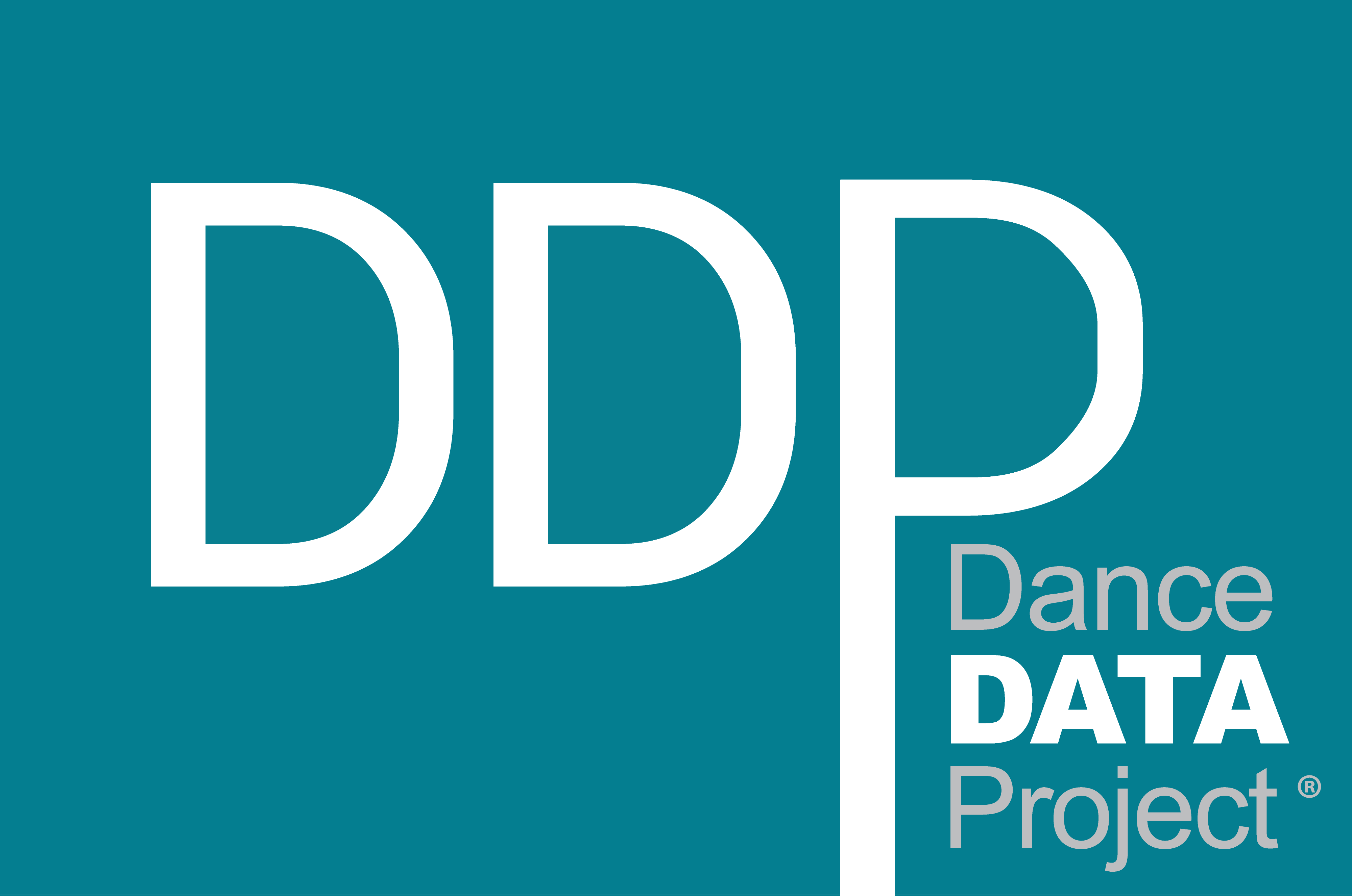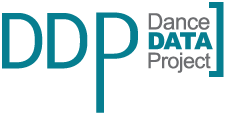DANCE DATA PROJECT® ANNOUNCES FIRST-EVER GENDER EQUITY INDEX RANKING OF LARGEST U.S. BALLET COMPANIES
Northfield, IL | February 28, 2023 | Today, Dance Data Project® (DDP) announces the results from the first-ever Gender Equity Index (GEI) in the performing arts for the Largest 50 U.S. ballet companies. DDP’s GEI is designed to assess how ballet companies measure up in terms of commissioning female creators, promoting women to leadership positions, and fostering a transparent and accountable culture.
The following companies have received “Best of” Awards in specific categories within the ranking:
Gender Equity Index Winners 2023
Best Overall – Eugene Ballet
Best of Leadership – Dallas Black Dance Theatre + BalletX + Smuin Ballet (tied)
Best of Commissions – Eugene Ballet
Best Company (Male Artistic Leadership) Overall – Ballet Idaho
Best Company (Male Artistic Leadership) Commissions – Ballet Hispánico
Founder’s Award – Ann Williams of Dallas Black Dance Theatre
Honorable Mentions
With the goal of affirming positive work and practices throughout the United States, DDP has awarded Honorable Mentions for companies who have created opportunities for full-length premieres by female choreographers.
Commissioned Full-length World Premiere by Female Choreographer:
Pittsburgh Ballet Theatre – Swan Lake, Susan Jaffe
Ballet San Antonio – Cinderella, Conny Mathot
Commissioned Full-Length U.S. Premiere by Female Choreographer:
Tulsa Ballet – Vendetta, A Mafia Story, Annabelle Lopez Ochoa
American Ballet Theatre and Joffrey Ballet – Jane Eyre, Cathy Marston
Commissioned Virtual Full-Length World Premiere by Female Choreographer:
Louisville Ballet –Rite of Spring, Andrea Schermoly
DDP Founder & President, Elizabeth ‘Liza’ Yntema noted: “Each of the winners exemplifies not just equitable and transparent practices, but in many cases, innovation coupled with refreshing, rigorous examination of all aspects of their operations. Being the biggest certainly doesn’t mean you are the best in the ballet world.”
Beyond the “Best of” Awards and Honorable Mentions, DDP has ranked the Largest 50 U.S. ballet companies (with a few deliberate omissions, explained in the GEI Frequently Asked Questions) based on their equity score. Companies are grouped into “Exceptional,” “Good,” and “Needs Work” categories. The full ranking by category can be found on the Gender Equity Index page of DDP’s website.
DDP research has demonstrated persistent and pervasive gender inequities in the dance world, underscoring the GEI’s necessity. Among the Largest 50 U.S. ballet companies, only 30% of Artistic Directors are female (Artistic & Executive Leadership Report 2022) as of July 2022. Women who did rise to the rank of artistic director in the Largest 50 made an average of just 63 cents on the dollar compared to their male counterparts in FY 2020.
DDP documented that post return from the pandemic to live performances, companies’ commissioning of women for the 2022-2023 season has dropped to 27% from 29% in the 2021-2022 season by the Largest 150. Within the Largest 50 in the 2022-2023 season, full-length world premieres, the scarcest, most prestigious and lucrative of commissions, are 65% male (First Look Report 2022-2023). DDP’s most recent Data Byte found that in the 2018 through 2023 seasons, 77% of full-length U.S. and world premieres were awarded to men.
DDP’s GEI is a measure of effort the Largest 50 companies are putting towards correcting these inequities. Audiences, board members, donors and foundations all stand to benefit from transparency regarding the work and organizational practices they are supporting, both fiscally and otherwise. “Through this process, we at DDP have discovered so many instances of forward thinking, creativity and openness to change that should be celebrated,” says Jenna Magrath, DDP Research Coordinator.
DDP’s Gender Equity Index is a first for the performing arts. DDP Communications Lead Isabelle Ramey emphasized, “We have been researching and planning the Index for over 2 years. DDP is ‘stealing’ the best, most up-to-date ideas and methodologies from government, business, not for profit management, and popular culture to highlight prolonged, systematic inequality in dance. We are providing a tangible tool to catalyze change.”
Dance Data Project® utilized a proprietary algorithm that combines participating companies’ answers (including the company’s transparency around policies, pay, and practices) with DDP’s research findings in order to score this year’s GEI. Categories of scoring include Commissions, Leadership, and the GEI Survey. By taking an additive approach, companies gain points for every area in which they are working towards equity.
A company’s overall ranking is determined by a weighted sum of its component scores. Because ballet/classical dance has historically been a gender-inequitable field, DDP only awarded points to female-choreographed works or leadership positions filled by women. The point values were weighted according to the Fibonacci sequence, utilizing the Agile methodology. More information regarding the methods of scoring DDP’s inaugural Gender Equity Index can be found in the GEI FAQs on the Dance Data Project® website.
Of note: The 2023 Gender Equity Index considers company programming through the end of the 2021-2022 season and considers leadership changes as of July 2022. Any leadership changes which occurred since July 2022 will be counted in next year’s Index ranking. To ensure programming information is as accurate as possible, the current 2022-2023 season was excluded from this year’s score as some of the 2023 spring/summer’s programming has not been announced or may change at any time. Commissioned works and full seasons are typically programmed at least one year in advance, meaning incoming directors likely are not creating the year during which they take the helm – their influence must be tracked from the following season onward.
DDP contacted the Largest 50 ballet companies individually in the fall of 2022 with a survey regarding their policies, pay, and practices. Twenty-six companies responded to this outreach.
In future iterations of the GEI, DDP intends to include more dance companies. DDP also plans to expand the Leadership section of the Index to include other roles, such as rehearsal directors, heads of schools, conductors, and composers in residence. DDP will further refine the scoring of commissions to capture the varying degrees of investment that each production represents.
Visit the Gender Equity Index page on DDP’s website for more information about company rankings, reasons for omissions, and a breakdown of this year’s scoring.



